We explore the life and work of Jorge Luis Borges. In addition, we discuss his main characteristics, famous quotes, and death.
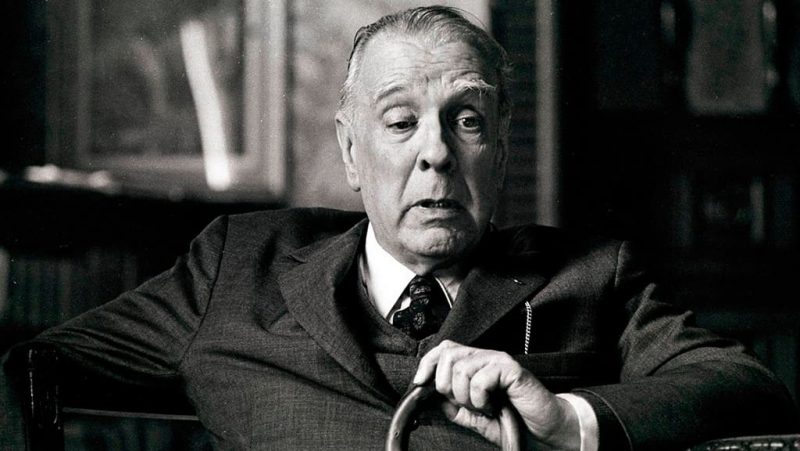
Who was Jorge Luis Borges?
Jorge Luis Borges (1899-1986) was an Argentine writer regarded as one of the foremost exponents of Argentine, Spanish-language and world literature of the twentieth century.
His body of work, consisting of short stories, poems, and essays, displays an exceptionally high level of erudition and an unparalleled inventiveness, which has inspired writers and artists across the globe.
Borges was also renowned for his progressive blindness, a congenital disease inherited from his father, which, however, did not hinder his literary career.
Despite being nominated for over 30 years to the Nobel Prize in Literature, he was never awarded it. The reason for this would have been his well-known reactionary political stances.
- See also: Octavio Paz
Birth of Jorge Luis Borges
Borges was born in Buenos Aires on August 24, 1899, a premature baby, to Jorge Guillermo Borges and Leonor Acevedo Suárez.
His family descended from a lineage of Argentine heroes involved in the War of Independence, including Francisco Narciso Laprida, Francisco Borges Lafinur, Manuel Isidoro Suárez, and Juan Crisóstomo Lafinur.
His father broke with family tradition by pursuing law and psychology, which provided young Jorge Luis with access to an important library.
Biography of Jorge Luis Borges
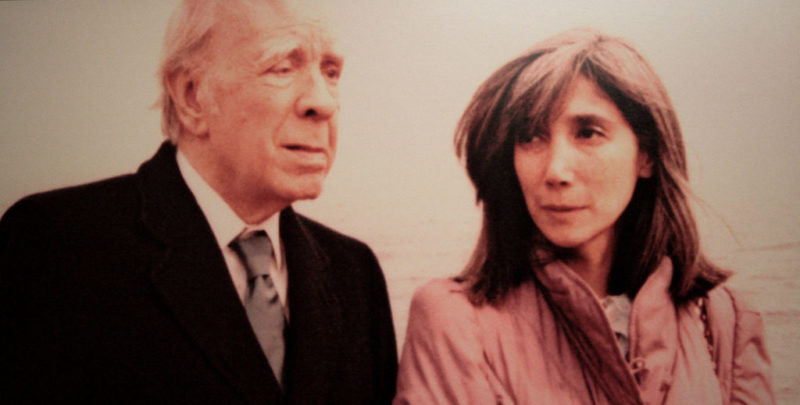
Borges received a privileged education both from English governesses and in a bilingual household.
He later studied in international schools when his family moved to Europe in 1914 so that his father could undergo ophthalmological treatments in Geneva, Switzerland, suffering from the same disease that he would later pass on to his son.
The young Borges showed an early talent in language and reading, writing his first short stories before reaching adolescence.
At the age of nine, he translated works by English author Oscar Wilde, a writer he never ceased to admire. Having returned with his family to Buenos Aires, at twenty-four he founded the Ultraist magazine Proa alongside Ricardo Güiraldes, among other authors.
A year earlier, he had published his first collection of poems: Fervor de Buenos Aires (Passion for Buenos Aires), and by 1925, he had already become one of the most prominent figures in local avant-garde literature.
In 1940, he met Estela Canto, also a writer and translator, who would be the unrequited love of his life. In 1946, he witnessed the rise of Juan Domingo Perón to the presidency, defeating the Democratic Union, which Borges supported.
Thus, he gained his reputation as an anti-Peronist, which followed him all his life. In fact, his enmity with Peronism was such that he was transferred from his position as a librarian at the National Library to "Inspector of Poultry", forcing him to resign.
Ten years later, he would become nationally and internationally acclaimed, becoming a central figure in literature. In 1955, he was appointed director of the National Library by the government of the Liberating Revolution which overthrew Peronism.
Between the 1960s and 1970s, Borges published his best stories, establishing himself in the Argentine and American academia. He married 57-year-old widow Elsa Astete Millán; Borges was 68.
In 1970 the marriage dissolved, and in 1975, the writer started a relationship with Maria Kodama, a former student and future second wife.
Most notable works of Jorge Luis Borges
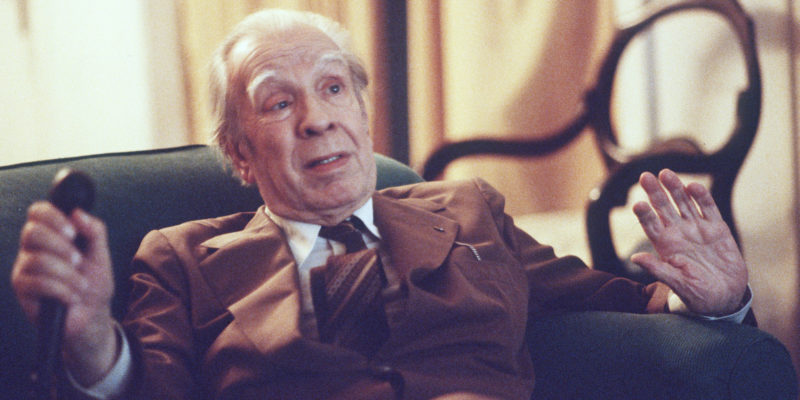
Borges' work is particularly notable for his contribution to the short story (6 books), a genre in which he is an obligatory reference today.
His essays (8 books) also brought him international recognition, though not as much as his poetry (13 books). Among his most famous works are:
- Fervor de Buenos Aires (Passion for Buenos Aires) (poetry, 1923)
- El otro, el mismo (The Other, the Same) (poetry, 1964)
- Historia Universal de la Infamia (A Universal History of Infamy) (short stories, 1935)
- Ficciones (Fictions) (short stories, 1944)
- El Aleph (The Aleph) (short stories, 1949)
- Inquisiciones (Inquisitions)(essays, 1925)
- El idioma de los argentinos (The Language of the Argentines) (essays, 1928)
Awards of Jorge Luis Borges
His work was highly acclaimed all over the world, earning numerous awards including:
- Formentor Prize, shared with Samuel Beckett in 1961.
- Grand Prize of the National Endowment for the Arts, Buenos Aires, Argentina, in 1962.
- In 1965, he received the Knight of the Order of the British Empire insignia and the Gold Medal of the IX Poetry Prize of the city of Florence.
- He was awarded the Illustrious Citizen of Buenos Aires recognition in 1973, and that same year he received the Alfonso Reyes International Prize.
- In 1980, he received the Cervantes Prize, the Grand Prize of the Royal Spanish Academy. That same year he was awarded the Cino del Duca World Prize in Paris, and the Balzan Prize in Italy.
- He was nominated for the Nobel Prize in Literature for several consecutive years, but it was never awarded to him. Allegedly, the reason would have been Borges’ acceptance of a tribute made in his lifetime by Chilean dictator Augusto Pinochet.
Ultraism
Borges was part, along with several Spanish authors such as Ramón Gómez de la Serna and Guillermo de Torre, of Ultraism, an avant-garde literary movement born around Ultra magazine (1921).
The stance this movement took was based on the following principles:
- Reduction of the lyric element to its primordial element, metaphor.
- Deletion of useless middle sentences, linking particles, and adjectives.
- Avoidance of ornamental artifacts, confessionalism, circumstantiation, preaching, and farfetched nebulosity.
- Synthesis of two or more images into one, thus widening its suggestiveness.
Disciples of Jorge Luis Borges
Borges had no direct "disciples" as such. Nevertheless, his work and influence have given rise to a school that has inspired many later great authors, among them:
- Ricardo Piglia (Argentina)
- César Aira (Argentina)
- Roberto Bolaño (Chile)
- Carlos Fuentes (Mexico)
- Orhan Pamuk (Turkey)
- Paul Auster (United States)
- Salman Rushdie (India)
- Umberto Eco (Italy)
- Julio Cortázar (Argentina)
- Julio Ramón Ribeyro (Peru).
Renowned friendships of Jorge Luis Borges
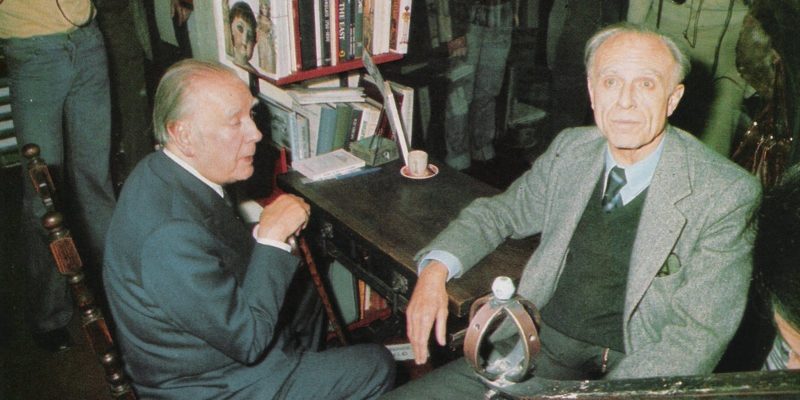
Borges’ two lifelong best friends were fellow writers Manuel Peyrou and especially Adolfo Bioy Casares. Borges was a witness at the wedding of Bioy Casares to Silvina Ocampo, also a writer and friend.
Also well-known is his friendship with Mexican Alfonso Reyes, who served as ambassador in Buenos Aires from 1927 to 1930.
Other notable friendships include those with the eccentric artist Xul Solar, writers Ernesto Sábato, Ricardo Güiraldes, Macedonio Fernández, and cartoonist Héctor G. Oesterheld.
Importance of his work
Borges' body of work has universal significance, transcending languages and local literary traditions. His works are studied in academies around the world, and are revered among the greatest in brief fictional narrative.
His writings touch upon the general concerns of humanity (philosophy, existential questions, and perplexity at the universe), expressed with supreme rationality.
Borges' work has served philosophers, mathematicians, semioticians, and thinkers from other disciplines to exemplify their theories and develop their own academic works, as is the case with Gilles Deleuze and Félix Guattari.
Final years and death of Jorge Luis Borges
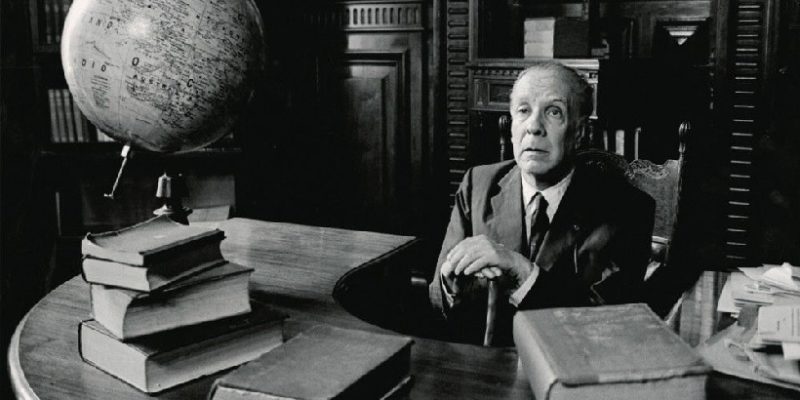
In 1986, Borges became ill with cancer and retired to Geneva, where he died on May 14, at the age of 86.
According to his wishes, he was buried at the Plainpalais cemetery. Bioy Casares said he died reciting the Lord's Prayer: "He said it in Old English, modern English, French, and Spanish".
Quotes by Jorge Luis Borges
- "We all walk towards anonymity, only that the mediocre arrive first."
- "The most noble thing about Argentinians is friendship, their passion for friendship."
- "To me, democracy is an abuse of statistics. And besides, I don't think it has any value. Do you think that to solve a mathematical or aesthetic problem one should consult the majority of the people?"
- "Friendship does not need frequency, love does."
- "If I were to undertake a journey alone, I would spend my life wandering... and would arrive at a customs, an airport, possibly arrive at Ezeiza and would not go beyond Ezeiza."
References
- “Jorge Luis Borges” en Wikipedia.
- “Jorge Luis Borges” en Biografías y Vidas.
- “Borges, Jorge Luis” en Escritores.org.
- “Jorge Luis Borges” en Gobierno de la Ciudad de Buenos Aires.
- “10 frases de Borges que te van a dejar pensando” en el diario Clarín.
- “Jorge Luis Borges (Argentine author)” en The Enciclopaedia Britannica.
Explore next:
Was this information useful to you?
Yes NoThank you for visiting us :)